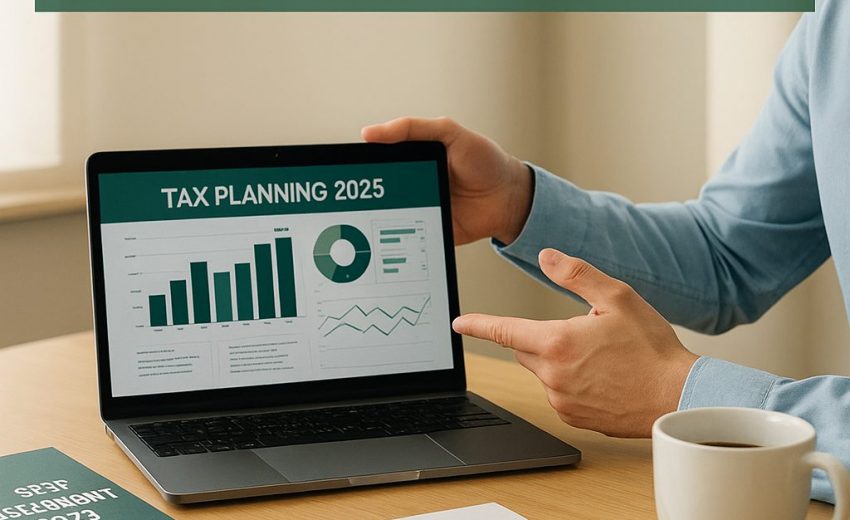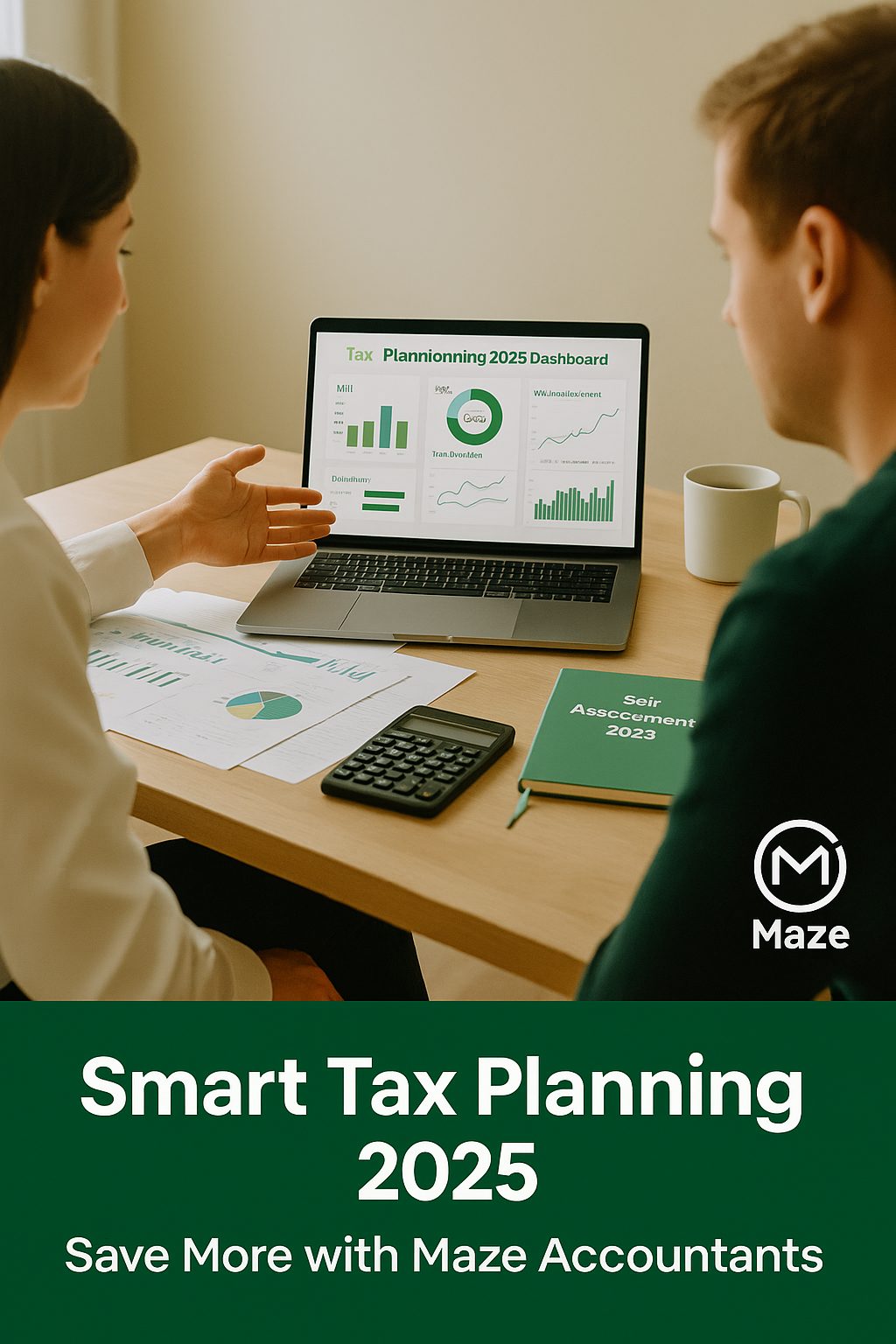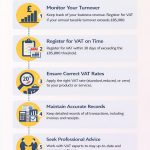
Tax rules are changing faster than ever – new HMRC guidelines, digital tax systems, shifting thresholds, and updated allowances are shaping how UK businesses manage tax in 2025.
Whether you’re a sole trader, contractor, landlord, limited company, or a growing business in Soho, London, smart tax planning isn’t optional anymore – it’s the difference between saving thousands and overpaying without realising.
In this long-form guide, you’ll learn:
✔ The new 2025 tax rules every business must know
✔ How to reduce your tax bill legally using government-approved reliefs
✔ Digital-first tax strategies used by top UK firms
✔ Best accounting setups for sole traders vs limited companies
✔ Smart VAT, CIS, payroll & Self Assessment optimisation
✔ How to use allowances HMRC expects you to miss
✔ Why Soho businesses are adopting digital tax planning faster than other London areas
Let’s get started.
⭐ Section 1: Why Smart Tax Planning Matters More in 2025

1. HMRC is Going Fully Digital
With the rollout of MTD for Income Tax & VAT, HMRC wants businesses to keep digital records and submit real-time tax data.
This affects:
- Sole traders earning over £30,000
- Landlords
- VAT-registered businesses
- Limited companies
- Contractors (especially under CIS)
If you’re still using spreadsheets or manual receipts, you’re already behind — and at higher risk of mistakes, penalties, and audits.
⭐ Section 2: Tax Planning Strategies That Actually Work in 2025
1. Choose the right business structure: Sole Trader vs Limited Company
In Soho, most freelancers, creatives, restaurateurs, and contractors operate as:
Sole Traders – Good for early stage
✔ Simple setup
✔ Lower admin
✔ Good for income under £35–40k
Limited Company – Better for tax saving
✔ Lower Corporation Tax (19–25%)
✔ Ability to split income (salary + dividends)
✔ Limited liability
✔ Better for contractors & growing businesses
2025 Winning Strategy:
If earnings > £45,000 → switching to a Limited Company usually saves £2,000–£6,500 per year.
2. Maximise business expenses (Most miss 40% of them)
Top Soho business deductible expenses:
- Home office costs
- Travel & commute to clients
- Accounting fees (fully deductible)
- Software subscriptions
- Phone & internet
- Equipment & repairs
- Professional training
- Marketing & website
Pro Tip:
Digital receipts + bank feed → HMRC-approved & impossible to lose.
3. Use annual allowances before they expire
Annual Investment Allowance (AIA)
You can claim 100% deduction on equipment purchases up to £1m.
Dividend Allowance (reduced)
New rules mean you must optimize dividend/salary mix more carefully.
Capital Gains Allowance
Reduced to £3,000 → property & share disposals need careful planning.
4. Smart VAT Planning for Soho Businesses
Soho businesses mostly fall under:
- Restaurants & cafés
- Retail
- Creatives
- Consultants
- Contractors
2025 VAT strategies that work
✔ Use Flat Rate Scheme if turnover < £150k
✔ Use Cash Accounting to pay VAT only when you get paid
✔ Claim VAT on pre-trading expenses
✔ Claim VAT on home office & equipment
5. CIS Tax Planning for Contractors (Huge Opportunity)
If you work in construction:
- Claim CIS refunds faster using digital records
- Offset expenses HMRC expects you to miss
- Maximise mileage, tools, PPE, travel
- Ensure subcontractor verification accuracy
The average CIS client saves £1,200–£3,800 annually with proper planning.
6. Payroll Tax Planning for Small Businesses
Use:
✔ Employment Allowance
✔ Director salary optimisation
✔ Tax-efficient employee benefits
✔ Pension contribution planning
✔ R&D staff-related credits (if applicable)
7. International or Import/Export Business?
Soho has hundreds of small importers, trade firms, creative agencies, and e-commerce stores dealing internationally.
We help with:
- Double Tax Treaties
- VAT OSS
- Import duty optimisation
- International tax relief
- Transfer pricing basics for small firms
⭐ Section 3: Digital Tax Planning – The Game-Changer
The biggest trend of 2025 is:
AI-powered tax dashboards
These help track:
- VAT
- CIS returns
- Income projections
- Tax liability forecasts
- Missing receipts
- Real-time payroll impact
Result?
Less stress, fewer mistakes, more tax savings.
This is exactly what we use at Maze Accountants Soho.
⭐ Section 4: Most Overlooked Tax Reliefs in 2025
✔ Home office relief
✔ Professional subscriptions
✔ Capital allowances
✔ Electric vehicle tax benefits
✔ Marriage allowance
✔ Rent-a-room relief
✔ Bad debt relief
✔ Pension contributions (huge tax reducer)
95% of Soho small business owners claim none of these correctly.
⭐ Section 5: Soho-Specific Tax Considerations (Local Advantage)
Soho businesses often deal with:
- High rents
- Frequent client entertainment
- Creative/consulting income
- Mixed employment + self-employed
- Staff turnover & payroll complexity
You need a tax strategy built for:
- Creative freelancers
- Mixed-income earners
- Retailers
- Restaurateurs
- Contractors
- Event & media workers
- SME owners
We provide exactly that.
⭐ Section 6: Should You Switch to Maze Accountants?
Here’s why Soho businesses choose us:
✔ Local & specialized tax expertise
✔ CIS / VAT / PAYE / SA / LTD expert support
✔ Digital dashboards for real-time tax awareness
✔ Fastest tax return processing
✔ Year-round tax planning
✔ AI-assisted bookkeeping & forecasting
Maze Accountants
Address: Chessington Business Centre, Cox Ln., Chessington KT9 1SD, United Kingdom
Website: www.mazeaccountants.co.uk
Phone: +44 20 8643 9633
Find Us On Google !
Services: Tax Planning, VAT, CIS, Payroll, Self Assessment, Company Accounts, Bookkeeping
FAQ
1. What is tax planning in the UK for 2025?
Tax planning for 2025 involves using HMRC-approved allowances, reliefs, digital systems, and business structure optimisation to reduce tax legally. With HMRC moving fully digital, proper records and forecasting are essential.
2. How can Soho businesses reduce tax in 2025?
Soho businesses can reduce tax by:
- Claiming all allowable expenses
- Using digital bookkeeping
- Optimising VAT (Flat Rate, Cash Accounting)
- Claiming capital allowances
- Choosing the right structure (sole trader vs limited company)
- Using pension contributions and dividend optimisation
3. Should I switch from sole trader to limited company in 2025?
If your earnings are above £45,000, moving to a limited company can significantly reduce tax by splitting income into salary + dividends and using lower Corporation Tax rates.
4. What tax allowances are available in 2025?
Key 2025 tax allowances include:
- Annual Investment Allowance
- Capital Gains Allowance
- Dividend Allowance
- Pension contribution relief
- Home office relief
- Business travel & subsistence expenses
5. How does digital accounting help with tax planning?
Digital accounting:
- Reduces errors
- Tracks expenses automatically
- Generates real-time tax forecasts
- Helps meet MTD requirements
- Speeds up VAT, Self Assessment & CIS submissions
6. Can contractors in construction save tax through CIS?
Yes — contractors can claim significant tax refunds through CIS by tracking tools, mileage, PPE, training, and travel expenses digitally. Many contractors overpay without realising.
7. Why should Soho businesses use a local accountant?
Local accountants understand the challenges unique to Soho — hospitality, creative industries, high rents, mixed incomes, and seasonal cash flow. This allows more accurate tax planning.











